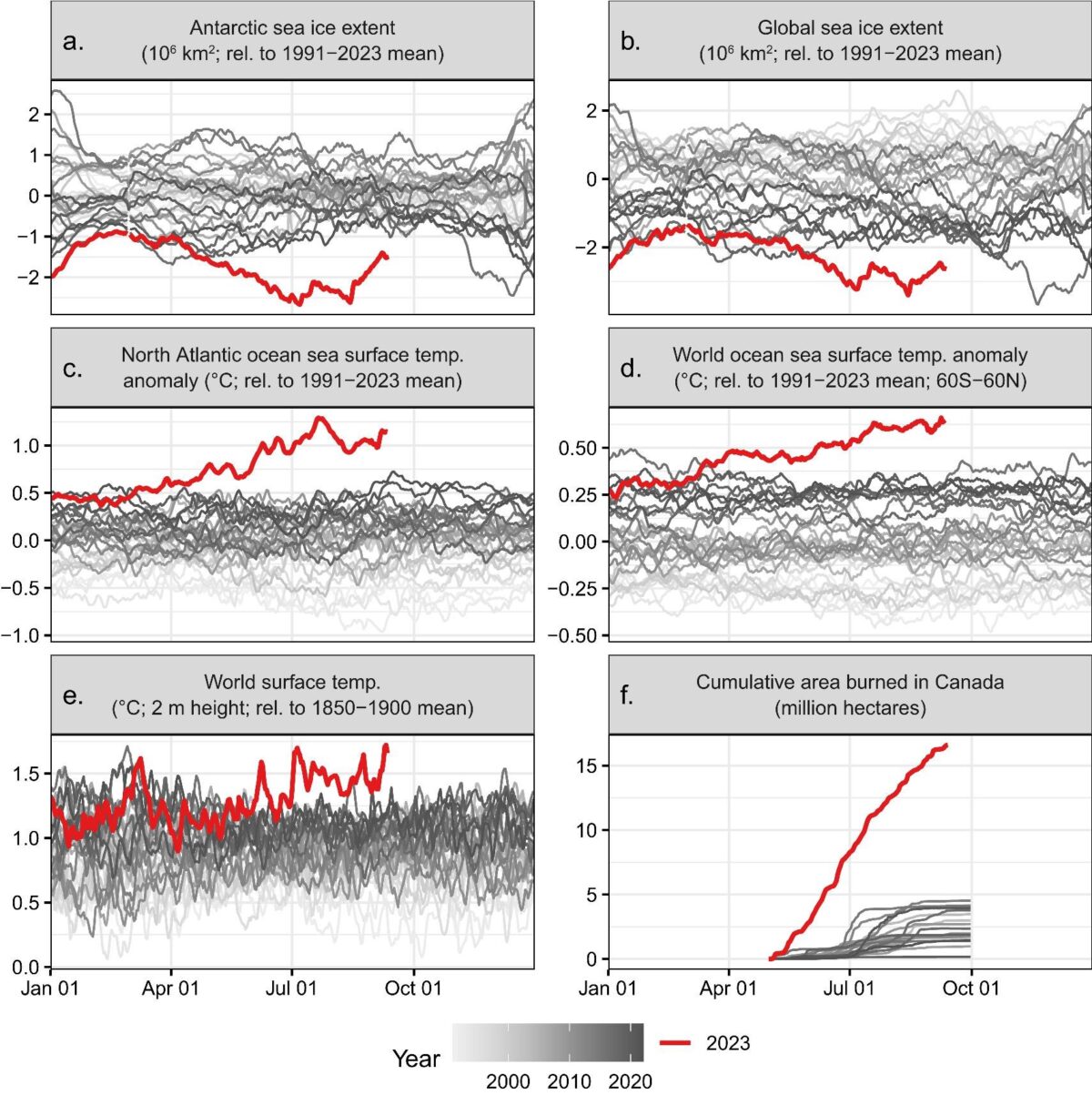
Earth’s vital signs have worsened beyond anything humans have yet seen, to the point that life on the planet is imperiled.
William Ripple, a distinguished professor in the Oregon State University College of Forestry, and former OSU postdoctoral researcher Christopher Wolf are the lead authors of the report, and 10 other U.S. and global scientists are co-authors.
“Without actions that address the root problem of humanity taking more from the Earth than it can safely give, we’re on our way to the potential collapse of natural and socioeconomic systems and a world with unbearable heat and shortages of food and freshwater,” Wolf said.
The paper, “The 2023 State of the climate report: Entering uncharted territory,” notes that 20 of 35 planetary vital signs the authors use to track climate change are at record extremes.
The report follows by four years the “World Scientists’ Warning of a Climate Emergency” published by Ripple and collaborators in BioScience and co-signed by more than 15,000 scientists in 161 countries.
“Life on our planet is clearly under siege,” Ripple said. “The statistical trends show deeply alarming patterns of climate-related variables and disasters. We also found little progress to report as far as humanity combating climate change.”
Among the key numbers in the report:
- Fossil fuel subsidies—actions by governments that artificially lower the cost of energy production, raise the price received by producers or lower the price paid by consumers—roughly doubled between 2021 and 2022, from $531 billion to just over $1 trillion.
- Already this year wildfires in Canada have pumped more than 1 gigaton of carbon dioxide into the atmosphere, greater than Canada’s total 2021 greenhouse gas emissions of 0.67 gigatons.
- Global daily mean temperatures never exceeded 1.5°C above preindustrial levels prior to 2000 and have only occasionally exceeded that number since then. However, 2023 has already seen 38 days with global average temperatures above 1.5°C by 12 September—more than any other year—and the total may continue to rise.
- The highest average Earth surface temperature ever recorded came this past July, and there’s reason to believe it was the highest surface temperature the planet has seen in the last 100,000 years.
“As scientists, we are hugely troubled by the sudden increases in the frequency and severity of climate-related disasters,” said Wolf,
“The frequency and severity of those disasters might be outpacing rising temperatures. By the end of the 21st century, as many as 3–6 billion people may find themselves outside the Earth’s livable regions, meaning they will be encountering severe heat, limited food availability and elevated mortality rates.”